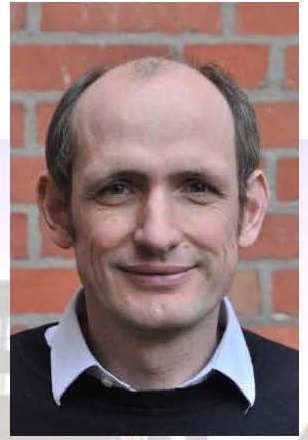Department of Electrical and Computer Engineering Guest Lecturer Series
In Vivo Brain Viscoelasticity as a New Marker for Neurological Diseases
Professor Ingolf Sack, Charité – Universitätsmedizin Berlin, Germany
Friday, May 17, 2019
Noon–1 p.m.
Goergen Hall 101

Abstract: Elasticity and viscosity are important classes of parameters for the characterization of biophysical tissue properties. Time harmonic elastography based on MRI or ultrasound can quantify in vivo viscoelasticity parameters of the brain. MRI elastography is unique in providing high-resolution maps of cerebral viscoelasticity and has been proven sensitive to physiological tissue changes such as aging or hypercapnia as well as various diseases including Alzheimer's disease or multiple sclerosis. Ultrasound brain elastography is a new modality with higher temporal resolution than MRI and is potentially sensitive to short-term changes of brain stiffness due to variations in intracranial pressure, blood perfusion, autoregulation or function. This talk reviews recent approaches of in-vivo mapping of brain tissue by elastography, discusses physiological influences on brain viscoelasticity and outlines potential clinical applications.
Bio: Ingolf Sack is full professor for Experimental Radiology and Elastography at Charité – Universitätsmedizin Berlin, Germany. His research activities span from NMR spectroscopy, MRI, biomechanics, acoustics and rheology to medical ultrasound, signal processing and image analysis. He leads an interdisciplinary team of physicists, engineers, chemists and physicians which has pioneered pivotal developments in elastography of the liver, muscle, heart and brain.
